When Will Ramadan 2025 Start and End?
 Happy Ramadan: Top 55 Frequently Asked Questions And Answers Happy Ramadan: Top 55 Frequently Asked Questions And Answers |
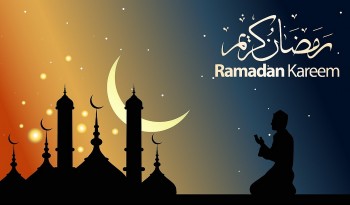 Happy Ramadan: Top 25 Most Popular Words/Phrases and Pronunciation in Arabic, English Happy Ramadan: Top 25 Most Popular Words/Phrases and Pronunciation in Arabic, English |
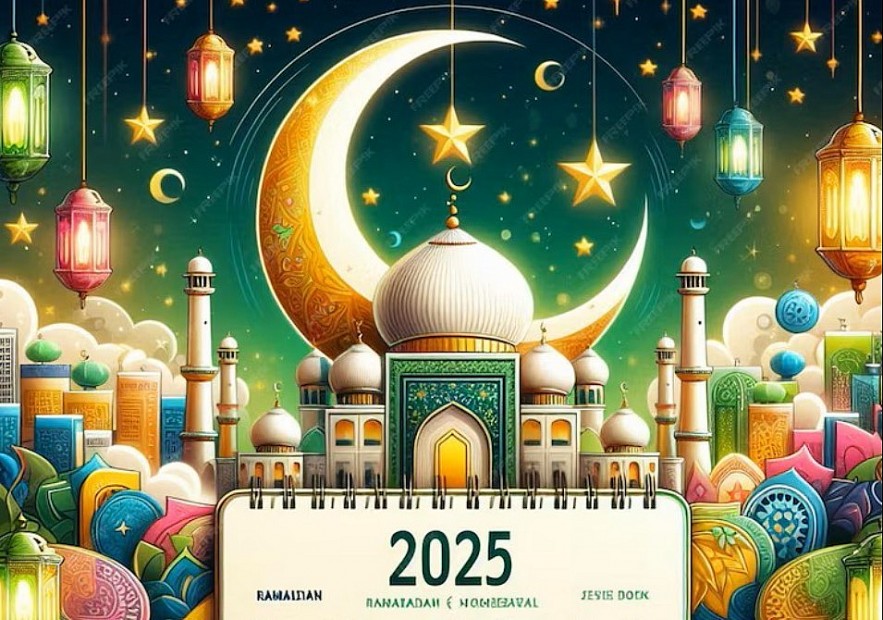 |
| Ramadan is expected to begin on Friday, Feb. 28, or Saturday, March 1, 2025 |
Ramadan is one of the most sacred periods in the Islamic calendar—a time when Muslims around the world unite in fasting, prayer, reflection, and community.
The Significance of Ramadan
Ramadan holds immense significance for Muslims across the globe. It is far more than a period of abstaining from food and drink; it is a time dedicated to self-discipline, spiritual growth, and deepening one’s connection with Allah. During Ramadan, believers refrain from eating, drinking, and engaging in other physical needs from dawn until sunset as an act of worship and to foster empathy for those less fortunate. This period of introspection and self-improvement rejuvenates one’s faith, purifies the soul, and strengthens community bonds.
Fasting during Ramadan is one of the Five Pillars of Islam, making it obligatory for all adult Muslims—except for those who are ill, pregnant, nursing, traveling, or otherwise unable to fast. The month is punctuated by special nightly prayers known as Taraweeh, held in mosques where communities gather to recite the Quran. These prayers and extra spiritual activities serve as reminders of the virtues of patience, perseverance, and gratitude.
Understanding the Lunar Calendar
The Islamic calendar is based on lunar cycles, meaning that each year is roughly 11 days shorter than the solar Gregorian calendar. As a result, Ramadan shifts earlier by about 11 days every year relative to the Gregorian calendar. The beginning of Ramadan is determined by the sighting of the new moon—a practice that not only carries deep historical and spiritual meaning but also introduces a small degree of variability in the exact dates.
In recent years, many communities have also relied on astronomical calculations to estimate the start and end of Ramadan. For 2025, these calculations suggest that the crescent moon will be visible on the evening of February 28, 2025. Once the new moon is observed, the first day of fasting is marked on March 1, 2025. After completing the fast for either 29 or 30 days, Ramadan is expected to end on the evening of March 30, 2025, with Eid al-Fitr celebrated the following day. Despite these predictions, the actual dates may vary slightly between regions based on local moon sightings.
The Start of Ramadan 2025
Astronomical Predictions and Moon Sighting
The commencement of Ramadan is an event marked by both scientific calculation and centuries-old tradition. For Ramadan 2025, astronomical predictions indicate that the new crescent moon will appear on the evening of February 28, 2025. This sighting is significant because it marks the beginning of the lunar month. In many Muslim communities, scholars and moon-sighting committees observe the sky at sunset to confirm the presence of the thin crescent. Once confirmed, the fast begins with the pre-dawn meal, or Suhoor, and continues until sunset the following day.
Community Anticipation and Preparations
For Muslims around the world, the start of Ramadan is filled with both excitement and solemnity. In the days leading up to the beginning of Ramadan, families engage in spiritual and practical preparations—ranging from increased prayer and Quranic recitation to stocking up on food items essential for Suhoor and Iftar meals. Mosques and community centers often organize special lectures and study sessions, explaining the virtues of fasting and the significance of the month. This period of anticipation is as much about mental and emotional readiness as it is about the physical act of fasting.
Cultural and Regional Variations
While the astronomical calculation provides a general guide, the actual start of Ramadan can vary by a day or so between different regions. Local moon-sighting committees play a vital role in this process. For instance, while many communities may begin their fast on March 1, 2025, others might observe the start on March 2, depending on local visibility conditions and traditional practices. This regional diversity highlights the blend of science and tradition in marking the beginning of Ramadan and underscores the unity in diversity within the global Muslim community.
The Spiritual Journey of FastingFasting during Ramadan extends well beyond refraining from food and drink. It is a holistic exercise in self-discipline that permeates every aspect of a believer’s life. By forgoing earthly pleasures during daylight hours, Muslims aim to cleanse both their bodies and souls, redirecting their focus toward spiritual growth and charitable deeds. Throughout the month, the fast is broken at sunset with a meal known as Iftar. Traditionally, this meal starts with the consumption of dates and water—a practice inspired by the traditions of the Prophet Muhammad (peace be upon him). Following this, a larger meal is shared among family and friends, reinforcing the communal bonds that are central to Ramadan. Equally significant is the pre-dawn meal, Suhoor, which provides the essential nourishment needed to sustain the day’s fast. |
The End of Ramadan 2025
Determining the End: Moon Sighting and Calculations
Just as the start of Ramadan hinges on the sighting of the new crescent moon, the end of Ramadan is determined in a similar manner. After a month of fasting, believers await the appearance of the next crescent, which signals the end of the fast. For Ramadan 2025, astronomical predictions suggest that the crescent will be visible on the evening of March 30, 2025. Once this is confirmed by local moon-sighting committees, the fast is considered complete, and the following day is declared as Eid al-Fitr.
Eid al-Fitr: The Joyful Celebration
Eid al-Fitr, marking the end of Ramadan, is one of the most important festive occasions in the Islamic calendar. After a month of discipline and spiritual reflection, Eid al-Fitr is a day of joy, thanksgiving, and communal harmony. The celebration typically begins with a special prayer held in large congregations, followed by feasts, the exchange of gifts, and acts of charity. It is a time for families and communities to come together, share their gratitude for the blessings of Ramadan, and extend support to those in need.
Reflections on the Conclusion of a Spiritual Journey
The end of Ramadan is not simply a return to normal life; it is a moment of profound reflection. The month-long fast serves as a reminder of the virtues of sacrifice, empathy, and discipline. As the community gathers to celebrate Eid, there is also an underlying commitment to carry forward the values learned during Ramadan—compassion, generosity, and self-improvement—into everyday life. While the predicted end of Ramadan is set for the evening of March 30, 2025, the lasting impact of the month is felt well beyond its conclusion.
Global Variations in Celebrations
Ramadan is observed by millions of Muslims worldwide, and its celebration varies significantly from region to region. In some countries, the entire month is marked by a national sense of calm, with modified work hours and extensive communal prayers. In contrast, other regions may emphasize family gatherings and localized celebrations of Iftar.
In many Middle Eastern and South Asian countries, the festive atmosphere permeates every street as markets come alive at night with special Ramadan offerings. Meanwhile, in Western countries, mosques and cultural centers play a crucial role in preserving and sharing the traditions of Ramadan among diverse communities.
Preparing for Ramadan
The weeks leading up to Ramadan are a time of both practical and spiritual preparation. Many Muslims use this period to adjust their daily schedules, ensuring that work, school, and personal commitments align with the demands of fasting. Alongside these logistical adjustments, individuals often devote extra time to prayer and reflection, setting personal goals for spiritual growth. Community centers and mosques host special programs and workshops that remind participants of the importance of self-discipline and empathy, emphasizing that the true essence of Ramadan lies in personal transformation and communal support.
A Month of Reflection, Renewal, and CharityOne of Ramadan’s most cherished aspects is its emphasis on charity and compassion. Muslims are encouraged to increase their charitable activities during this month—whether by donating to the needy, sponsoring communal Iftar events, or volunteering in local community projects. Fasting instills a deeper awareness of the hardships faced by others, prompting many to extend their support to those less fortunate. This collective spirit of giving not only alleviates the suffering of others but also reinforces a sense of unity and solidarity within the community. |
Looking Ahead to Ramadan 2025
With the predicted dates—beginning on the evening of February 28, 2025, and concluding on the evening of March 30, 2025—Ramadan 2025 offers both a roadmap and an invitation to spiritual renewal. While the precise start and end dates depend on local moon sightings, the essence of Ramadan remains unchanged: a commitment to self-improvement, empathy, and community. Whether you are actively participating in the fast, supporting loved ones during this time, or seeking a deeper understanding of this sacred period, Ramadan serves as a powerful reminder of the values that unite us.
Conclusion
Ramadan is not just a period of abstention—it is a transformative journey that touches every facet of life. With Ramadan 2025 expected to begin on the evening of February 28, 2025, and conclude on the evening of March 30, 2025, the upcoming observance promises to be a time of profound reflection, communal bonding, and renewed spiritual vigor. The two dedicated sections on the start and end of Ramadan highlight the meticulous blend of astronomical precision and age-old traditions that mark this sacred month. As communities around the world prepare to welcome Ramadan, they are reminded of its timeless message: a call to empathy, gratitude, and the relentless pursuit of personal and collective betterment.
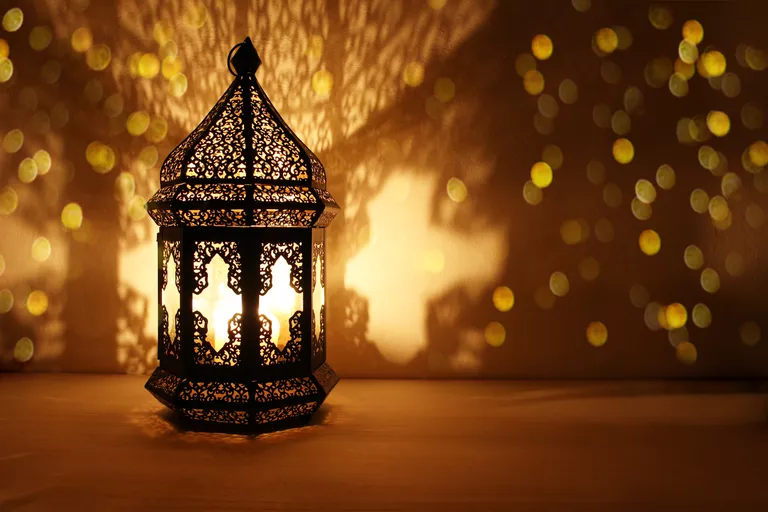 Why Is Ramadan Important for the Muslim Community: Dos and Donts Why Is Ramadan Important for the Muslim Community: Dos and Donts Ramadan is the ninth month of the Islamic lunar calendar and is observed by devout Muslims as a period of fasting, contemplation, and worship. The ... |
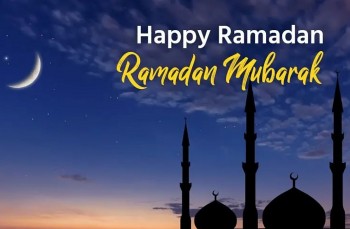 How to Say Happy Ramadan in Arabic with 12 Simple Ways How to Say Happy Ramadan in Arabic with 12 Simple Ways There are two best and simplest ways to say 'Happy Ramadan' in Arabic are: Ramadan Kareem and Ramadan Mubarak. However, KnowInsiders also suggests many other ... |
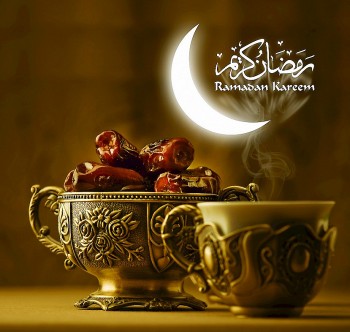 Happy Ramadan: Best Wishes, Quotes and Greetings in English and Arabic Happy Ramadan: Best Wishes, Quotes and Greetings in English and Arabic During the holy month of Ramadan, Knowinsiders offers suggestions for the best greetings, wishes, and quotes to send to friends, family, and coworkers. |
























